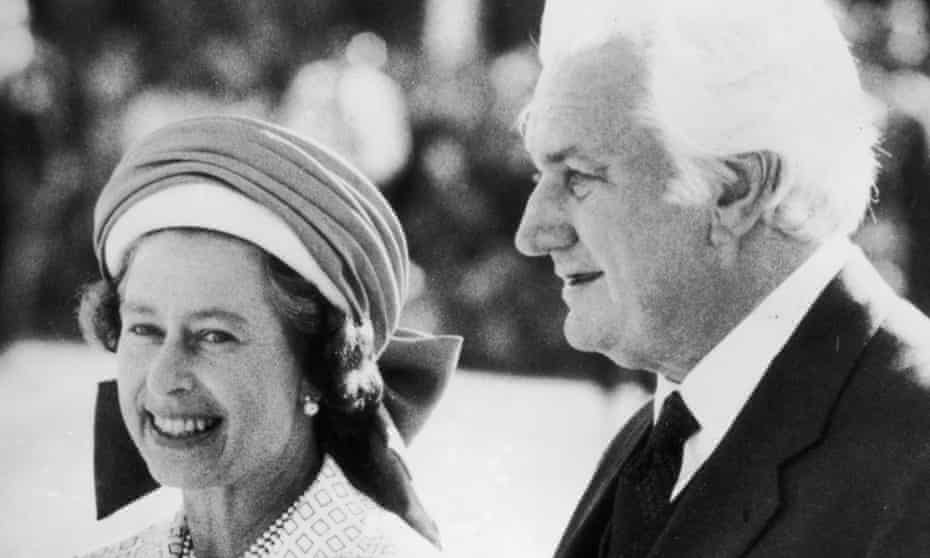Extract from The Guardian
John Kerr wrote to Queen’s secretary more than Australia’s previous five governors general combined

Last modified on Sat 8 Jan 2022 07.45 AEDT
A new trove of secret royal correspondence further highlights the inappropriateness of John Kerr’s interactions with the Queen’s private secretary in the lead-up to Gough Whitlam’s dismissal, according to historian Jenny Hocking.
Almost two years ago, Hocking won a monumental legal battle to secure the release of correspondence between then governor general Kerr, and the Queen and her private secretary, Martin Charteris.
The letters showed the extent to which the palace was drawn into Kerr’s 1975 plans to remove the Labor leader from office. They also raised questions about Kerr’s actions as governor general, a role marked by its requirement for political neutrality.
The letters showed he was privately railing against the Whitlam government, attacking their policy decisions, querying appointments, revealing details of confidential meetings of the executive government, and asking for advice and assurances from the monarchy about the potential use of reserve powers to dissolve government during the 1975 crisis.

On Friday, the National Archives of Australia released a huge volume of additional correspondence, spanning five governors general and 36 years, including that between Charteris and Kerr’s predecessor Paul Hasluck in 1974, the year before the dismissal.
The additional documents were reclassified and released in the wake of the high court’s 2020 decision that the Kerr letters were not “personal” correspondence, a classification that exempted them from the usual 30-year public release provisions applying to commonwealth records.
An early analysis of the documents by Hocking shows a remarkably different approach taken by Hasluck, a former Liberal member, in his correspondence with the crown.
Hasluck wrote roughly one letter a month. His correspondence was much rarer than Kerr, who wrote constantly to Charteris, asking his advice regularly, including on mundane matters, like what he should wear to his swearing in ceremony.
The difference is so stark that
the Kerr letters, which span three years, are as voluminous as the
combined correspondence of five governor-generals across 36 years.
On 22 April 1974, he wrote to inform the crown he had dissolved parliament ten days earlier.
“Although there had been much talk for some months past about the possibility of a double dissolution, the political crisis developed quickly and unexpectedly,” Hasluck wrote. “Ever since he came to office and faced a non-Labour majority in the Senate, the prime minister had taken some care to build up evidence to support a case for a double dissolution in case he ever found it advantageous to seek one. I doubt, however, whether he planned to make a submission at this time.”
Hocking said that the “contrast could not be stronger” between Hasluck and Kerr’s letters.
“[The letters] are just so different from Kerr’s – it’s really quite remarkable,” Hocking said.
“He writes when he needs to and, most importantly, he reports on decisions after he has made them.”
The newly released material is partly redacted.
Hocking, who was still working her way through the documents late Friday, said the redactions were disappointing.
No comments:
Post a Comment